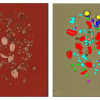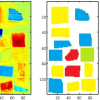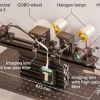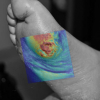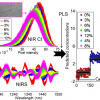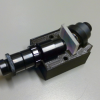WADI is an EU-funded project to develop an airborne leak detection surveillance system to enable water authorities to learn of water leaks in rural areas promptly. They use optical remote sensing (hyperspectral, multispectral and thermographic infrared) in manned and unmanned aerial vehicles.
During February 2017, WADI partners ONERA and SCP tested the airborne water leak detection surveillance service. A Busard aeroplane equipped with hyperspectral and infrared cameras flew over the facilities of Canal de Provence (SCP), in the South-East of France, and recorded images of the irrigation network including buried ductile iron pipes in three locations: Rians (close to Aix en Provence), Valtrède (Martingues) and Cabardelle (Salon de Provence).
The three flights provided high quality images in the IR spectral region (band III, between 8000 nm and 12,000 nm), SWIR (between 1400 nm and 3000 nm) and VNIR (between 400 nm and 1400 nm). ONERA, scientific coordinator of the WADI project, is currently processing the images to determine the most efficient wavelength among the 416 collected for the detection of soil humidity. This test will lead to the design of a measurement strategy for future campaigns.
In the next few weeks, SCP will release controlled leaks in view to a second test phase (WADI-2), scheduled for the end April 2017.


